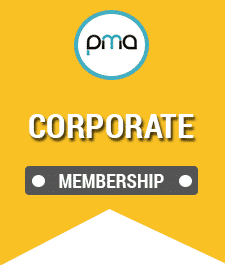If you like scrolling through memes, you’ll have seen the image of Ralph Wiggum sitting on the back of a bus. The text is usually something like “(chuckles) I’m in danger!”
Are you partnering with cashback sites through your affiliate program? If so, this meme might well fit your situation.
So how will you know if traffic coming from your cashback partners is bad? Here are five indicators that you might have a problem.
1. You’ve got chargebacks. The chargebacks will usually come 45-60 days after the transaction date. If your chargeback rate exceeds 1% you get into dangerous territory. Payment processors, like Mastercard, can qualify you as a ‘Chargeback Monitored Merchant’. This can be the first step to ending up on your card network’s MATCH list. (MATCH stands for Member Alert to Control High-Risk Merchants).
MATCH is the rebranded overhaul of an older list, the Terminated Merchant File (TMF). Mastercard created this list to help banks identify high-risk merchants.
Getting placed on the MATCH list can have serious repercussions on merchants. While you won’t lose any currently active merchant accounts in good standing, you won’t be able to open any new ones. Mastercard’s partners must consult the list before onboarding a new merchant. In the vast majority of cases, they will flat-out reject any merchant on it. Note. There are payment processors that specialize in high-risk accounts. They charge exorbitant rates for their services though.
2. Risky geolocations. If you see an uptick in traffic and sales from a part of the world outside your usual audience, it might be a warning sign. An example might be that you generally get the bulk of your sales from North America. But, you start seeing lots of sales from Vietnam or Romania.
3. High-value products. If you have an affiliate pushing only your highest value products, this may be a warning sign. This is especially the case if the affiliate is new to your program. There are many types of fraud that could be in play here. Incentivizing buyers or account takeover to get a sale are two.
4. Uncommunicative affiliates. Be cautious with affiliates who either ignore your emails or are slow to respond when you reach out to them. If an affiliate stops communication after you confront them about fraud this is a huge red flag. (This generally confirms that fraud has taken place).
5. Recurring complaints. If you get similar customer complaints from the same traffic source, this is a warning sign. The affiliate is likely using deceptive marketing tactics or incentives to inflate sales. Judge all complaints and negative reviews with care. Always keep an eye out for emerging patterns.
It can happen to you…
If you don’t think that affiliate fraud can happen to you, think again. One of the most publicized victims of cashback fraud was Nordstrom through Fatwallet. (Fatwallet ceased operations on October 9, 2017). The affiliate network used was Linkshare.
Two brothers Allen and Andrew Chiu were behind the fraud.
The brothers discovered that they could exploit a glitch in Nordstrom’s systems. This glitch treated some unprocessed orders as successful affiliate transactions. This generated commissions to FatWallet who then paid the brothers. According to court documents, the brothers made $23 Million in invalid purchases. These purchases generated $1.4M in commissions and fees. Of which the Chius received more than $650K.
If you want to read more on the fraud, Ben Edelman has a great write-up on this page. See the section ‘United States of America v. Allen J. Chiu and Andrew S. Chiu‘.
While the fraud was committed over a decade ago, it should serve as a valuable lesson.
Since the Fatwallet fraud, all well-known cashback sites have improved fraud detection systems. None of them though can say that fraud is not possible through their platforms.
Should I partner with Cashback sites?
This is the proverbial million-dollar question. Cashback sites can deliver incremental sales. And a lot of them. They do though pose a level of risk that’s too much for some merchants.
If you do decide to work with cashback sites, confine partnerships to a very small number of key players. Think Rakuten and Honey for example. Watch for chargebacks like…a…hawk! Also, make sure that you have a reliable contact at the cashback site. This will mean that you can remove any users on the platform who are delivering bad transactions. If you provide your contact with Order IDs for bad transactions, they will be able to see who generated them. And take appropriate action.
Do you have a problem with affiliate fraud? Give us a call today to discuss how Affiliate Manager Expert can help you. +1-307-222-0097.
Check out more ‘Revelations’ here.
Quote of The Week
“Success is not final; failure is not fatal: it is the courage to continue that counts.” ― Winston Churchill





Leave a Reply
Want to join the discussion?Feel free to contribute!